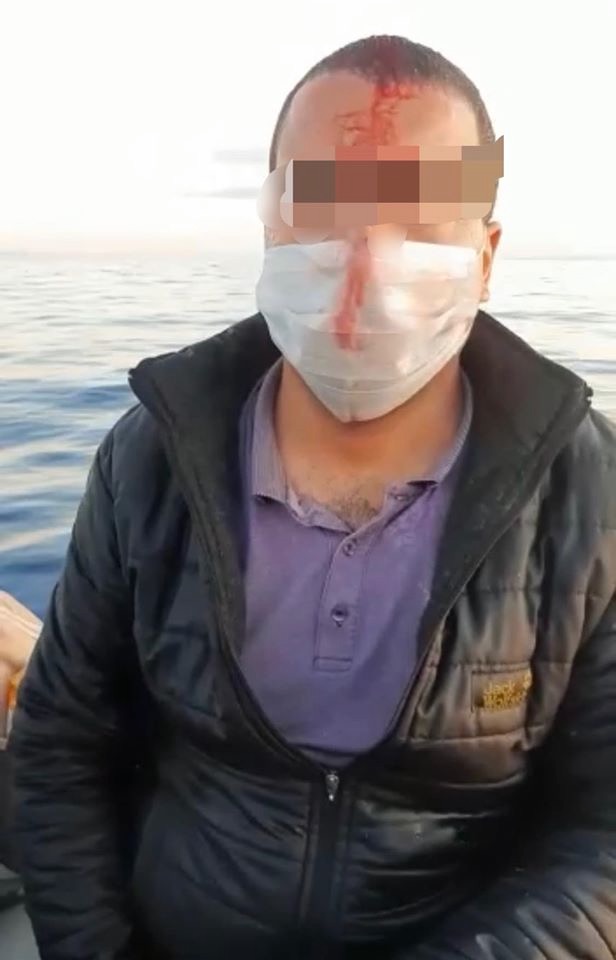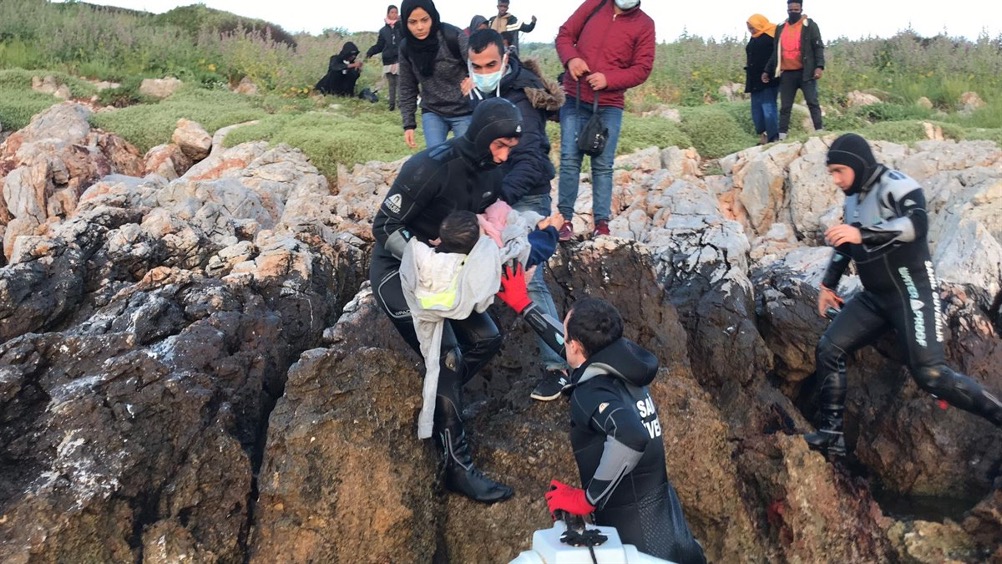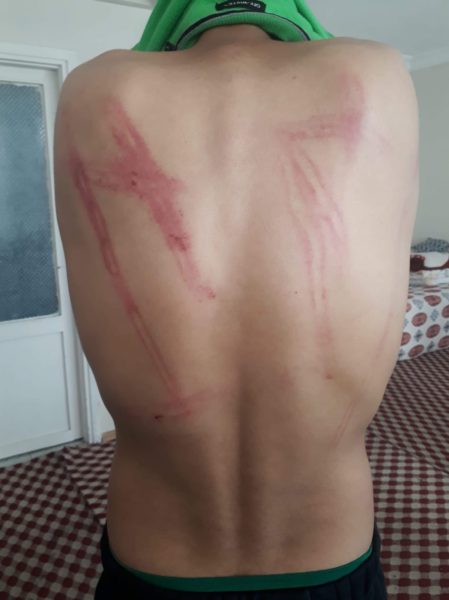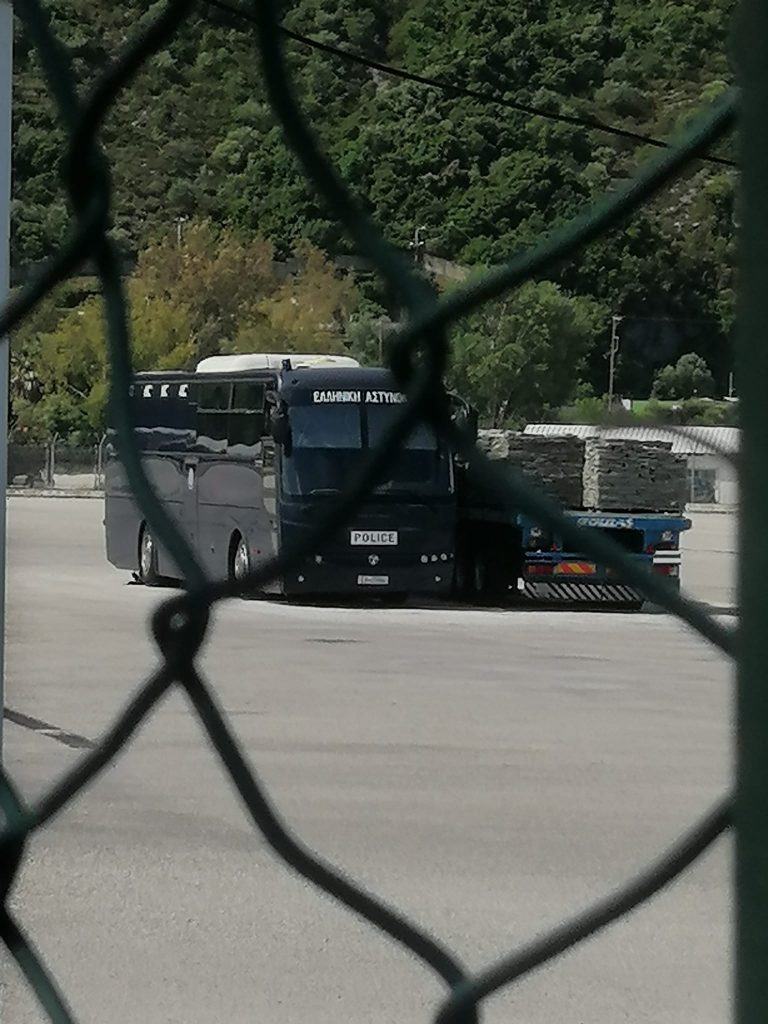By M.E.
Since the beginning of March, various organizations working in Greece have denounced the collective expulsions of migrants from the Aegean islands and mainland Greece. Different methods are used: the violent boarding and return of boats which have already reached Greek waters, the return of people who have landed at the shore, the arbitrary arrest and the collective expulsion to Turkey of people already living in reception camps on the continent. In all cases, the expulsions have been accompanied by police violence and impunity. The sheer numbers involved demonstrate the Greek state’s determination to enact mass pushbacks of people on the move. As expressed by Dimitris Christopoulos, president until recently of the International Federation for Human Rights (FIDH),
“Obviously, these tactics are violating the Greek Constitution and customary international law, yet they seem to be tolerated by the EU since they serve the purpose of preventing further people from crossing the Aegean or the River Evros into Europe.”
This is a visible intensification of the violation of the rights of people on the move, along a path followed by the European Union for several years now, but which has accelerated in all border countries since the beginning of the year. The COVID 19 pandemic provides not only a sufficient smokescreen, but also a perfect excuse for the detention and expulsion of migrants.
Organizations such as Watch The Med – Alarmphone or Aegean Boat Report have been able to record 15 cases of boats illegally returned to Turkish waters between April 20 and June 2, affecting 333 people, including at least 28 minors. However, many of these returns are probably not recorded, suggesting there may have been many more.
Attacks and Illegal Pushbacks in the Aegean Sea
Strategies for returns from the sea include destroying the engines of the vessels, making dangerous manoeuvres around the boats, firing ammunition into the air and into the water, and violence and intimidation of people on board. On many occasions the attacking crew is masked. The story of one witness narrates how
“The big boat let a highspeed boat down, which hunted us down. There were six masked men in black clothes. They stopped us and made many waves. With a long stick they took away our petrol and they broke our engine. They had guns and knives. Then they threw a rope to us and ordered us to fix it on our boat. Then they started pulling us back towards Turkey. After a while they stopped and cut the rope.”
On May 29 near the island of Lesbos, the Greek coast guards sprayed a child with white powder, causing burning and respiratory problems. Another man suffered a head injury when he was hit during the attack.

The Involvement of FRONTEX in illegal Push Back Operations
The involvement of Frontex in these types of operations became evident as early as March 6, when the crew of a Danish Frontex ship declared that they had refused to follow the orders they received from Operation Poseidon’s headquarters, which consisted of forcibly returning the 33 migrants they had just rescued to their dinghy and towing them out of Greek waters.
Flo Strass, a member of the Mare Liberum, clarifies that
“people repeatedly described how the ships were raising foreign flags, so we assume these operations are carried out by Frontex as well as the Greek Coast Guard. This occurs especially in cases where the ship’s crew is masked.”
Illegal Deportations from the Beaches of the Greek Islands
Along with the maritime returns, there are also illegal expulsions of people who have landed on the Aegean islands. At least 204 people have been removed with this practice since the end of April, in at least five illegal operations registered by eyewitnesses. During his visit to Samos on April 28, migration minister Notis Mitarakis declared on state television that
“There have been zero arrivals to our country in April 2020 thanks to the very big efforts made by our security forces.”
That same day, 39 people who had landed on Samos were pushed back into Turkish waters. This case has been analysed by a study which has shown that the same people who landed in Samos were picked up the next day by the Turkish coast guards. Expulsions from Chios have also been well documented by the Mare Liberum team.

In many cases, the Greek Coast Guards or Frontex force migrants to embark on life rafts without a motor and abandon them to their fate at sea, waiting for them to be picked up by the Turkish Coast Guards. This practice, obviously illegal, demonstrates a clear threat to the life and physical and psychological integrity of migrants. Despite this, on May 21 the mayors of Mytilene (Lesbos), Chios and Samos thanked the work of the coast guards “who serve in our islands, for the bravery, conscientiousness and self-sacrifice that they show every day during the execution of their mission’s, guarding the sea borders of our homeland and preventing successfully the landing of illegal immigrants on our islands.”
Expulsions from the Greek Mainland
Border Violence Monitoring Network and Josoor International Solidarity have been able to record a large part of the collective expulsions carried out from mainland Greece. Since the beginning of April, more than 390 people have been expulsed, mainly from the Diavata camp and the Drama Paranesti detention center, located near Thessaloniki, but also from the Igoumenitsa informal camp near the border with Albania. Vassilis Papadopoulos, President of the Greek Refugee Council, stresses that
“What is important and unprecedented in these allegations, if proven valid, is that we are talking about pushbacks from [deep] inside the country and even so from a camp without any formal deportation procedure being followed. “
There is a clearly established profile: single men, under the age of 30, from Afghanistan, Pakistan and North Africa. The people report being beaten, insulted, threatened with weapons, forced to undress and being assaulted with electric shocks. The theft of belongings is also routine. Water immersion has been identified and denounced as a punishment strategy.

Testimonies collected suggest people have been forced to sign a document in Greek, without the document being translated into a language they could understand. Most of these people were arrested in the camps under the pretext of renewing their identity cards, to be later taken to formal or informal detention centres for a period of up to two days, without sufficient water or food. One of the persons who was returned to Turkey explains that
“(t)he officers at the place were very violent and cruel. All detainees in the camp had to keep their heads down at all times. Otherwise they would be beaten with heavy batons”.
After that arrest, which in no case met minimum legal conditions, people were forced to cross the Evros river. It must be made absolutely clear that these are mostly people who have applied for asylum in Greece, and who therefore had the right to remain on Greek territory pending the resolution of their procedure.
“After almost 10 years during which these practices have been systematized on the Greek-Turkish border, this step forward in the impudence with which the Greek authorities perpetuate the returns does nothing but demonstrate the null political will to end this continuing violation of human rights. Instead of considering the accusations, advocating an internal investigation that could clarify what happened or promote preventive mechanisms, the tactic is, once again, to opt for obscurantism with the approval of the European institutions”, says Alba Díaz, coordinator of Border Violence Monitoring Network.

The aforementioned practices, both those related to returns from the Greek territorial sea, and pushbacks from the islands or the continent, are contrary to both international human rights law and EU law. Article 19 of the EU Charter of Fundamental Rights explicitly prohibits collective expulsions, and article 33 of the 1951 Geneva Convention enshrines the principle of non-refoulement, the cornerstone of international refugee protection. Last February, the judgment of the European Court of Human Rights endorsed the pushback of two sub-Saharan migrants in 2014 by the Spanish state. The resolution incorporated requirements for such practices that have even been ignored in the collective pushbacks being carried out by the Greek state.
The silence, if not the direct collaboration of the European authorities in the face of this type of practice, makes the EU an accomplice to a situation which, if not reversed, is on the way to establishing a state of violation of rights and permanent violence on Europe’s borders.
For shortened Spanish version see also Público
